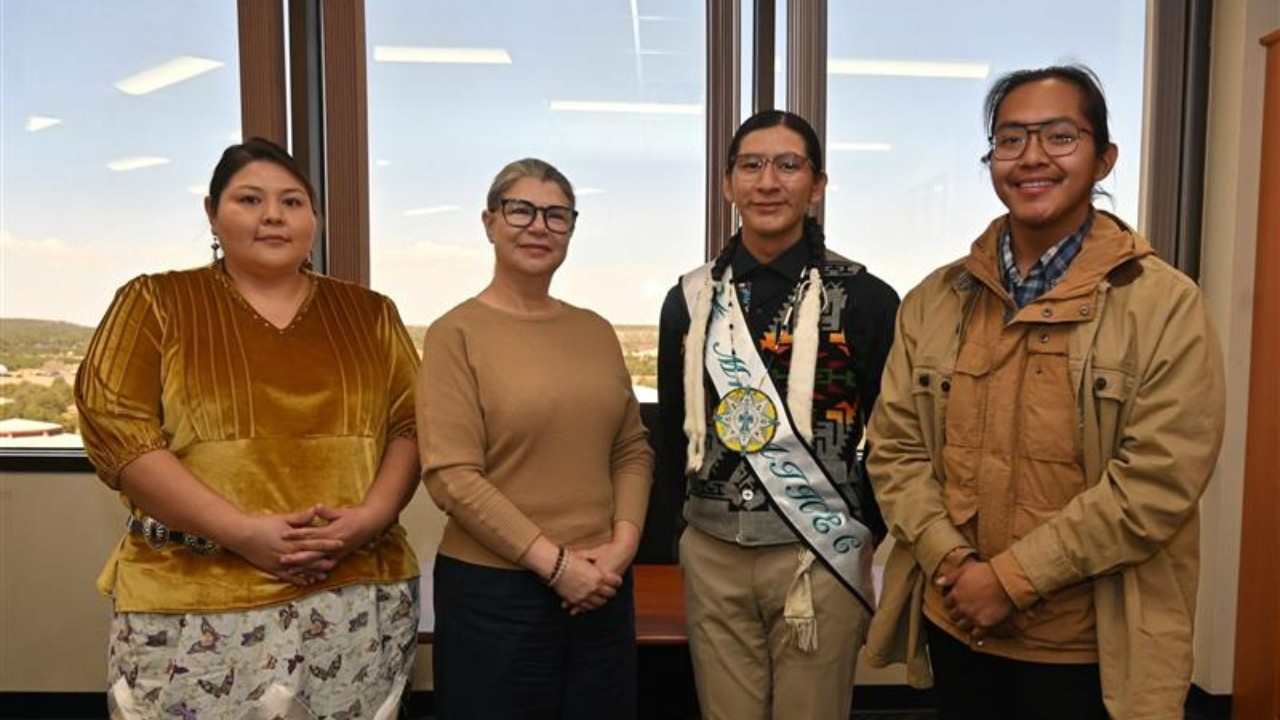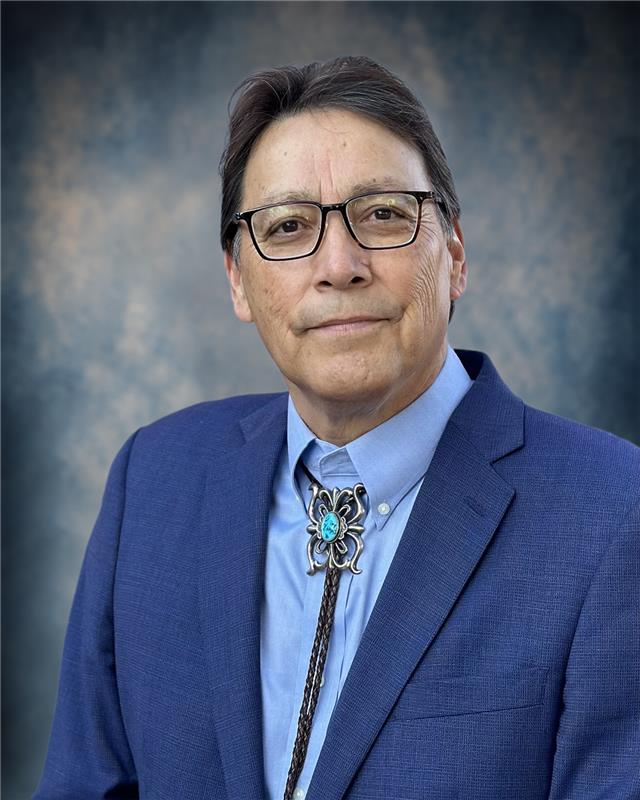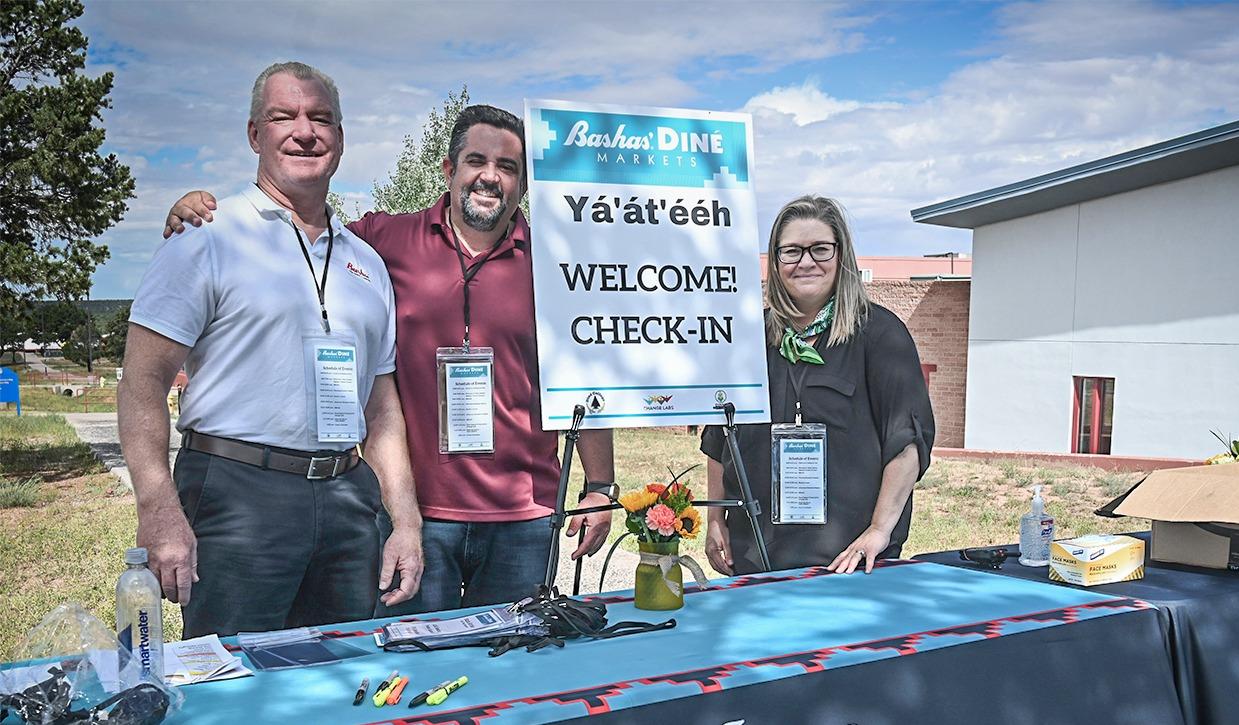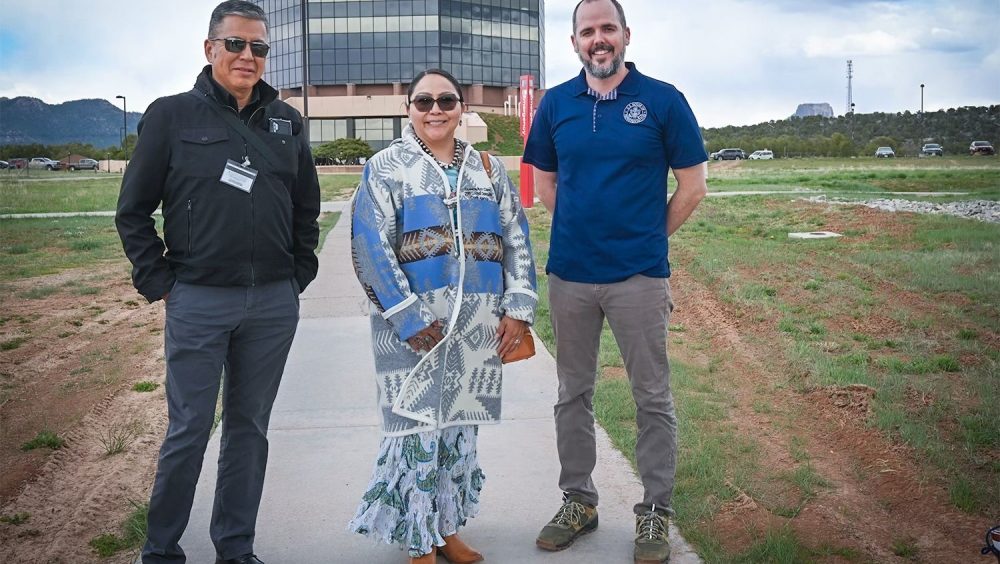AIHEC President Visits Diné College to Strengthen Tribal Education and Cultural Preservation
27 March 2025
Tsaile, Arizona. March 27, 2025, Ahniwake Rose, President and CEO of the American Indian Higher Education Consortium (AIHEC), visited Diné College on March 27, 2025, marking an important collaboration to enhance opportunities for tribal students and preserve Indigenous culture. During her visit, Rose met with Diné College administrators, faculty, and students to discuss the college’s mission, cultural programs, and the role of tribal education in empowering future generations.
Rose praised Diné College’s contributions as the first tribally controlled and accredited institution in the United States. “My visit to Diné College has been both inspiring and reaffirming,” Rose said. “Seeing the dedication of the students, staff, and leadership here strengthens my ability to advocate for policies that support tribal colleges and universities. These institutions preserve traditions while helping students thrive academically.”
A citizen of the Cherokee Nation and of Muscogee Creek descent, Rose highlighted AIHEC’s commitment to amplifying the voices of the 37 tribal colleges and universities it represents. “It’s my responsibility as an advocate to listen and learn directly from the communities we serve,” she affirmed.
Karen Francis, Chief of Staff at Diné College, provided an overview of the college’s history and mission. “A hundred years after the signing of the Treaty of 1868, the Navajo Nation chose to control its own educational future with the creation of Navajo Community College,” Francis said. “Chief Manuelito’s words, ‘My grandchild, education is the ladder. Tell our people to take it,’ continue to inspire our programs today. From offering classes in modular buildings to providing master’s degrees, Diné College encourages students to succeed while staying rooted in Navajo tradition.”
Since its founding in 1968, the college has consistently expanded its reach and impact. It became a four-year institution in 2019 and conferred its first master’s degrees in 2024. Diné College now offers six certificate programs, 16 associate degrees, 18 bachelor’s majors, and one master’s program, with plans to launch new graduate programs like an MBA and public health.
Harley Interpreter, Legislative Affairs Specialist, highlighted the unique degree offerings, including the Bachelor of Fine Arts (BFA) in Navajo cultural arts, which emphasizes traditional skills like silversmithing and weaving. “These programs preserve the cultural heritage of the Navajo people while preparing students for leadership roles in their communities,” Interpreter explained.
Interpeter added that Diné College’s alumni impact the broader region, with 86% of graduates staying within the Navajo Nation and bolstering local economies.
The visit also celebrated notable student achievements, including those of Terance Woody, who won the AIHEC Poetry Slam and earned the title of Mr. AIHEC for 2025-2026 at the recent AIHEC Student Conference. Reflecting on his success, Woody said, “This year, I told myself, ‘This is my year.’ Winning the poetry slam allowed me to showcase my story and bring recognition back to Diné College. Representing tribal colleges is an honor and a responsibility to amplify the voices of my peers.”
Woody’s accomplishments embody the college’s mission to foster leadership and academic excellence while preserving cultural identity. “For me, a TCU isn’t just about education; it’s about belonging,” Woody shared. “When students feel connected to their culture and their community, they thrive as both scholars and individuals.”
Damian Jones, Jr., another Diné College student, echoed these sentiments, emphasizing the role of traditional activities like hand games at the AIHEC Student Conference in bringing students together. “Participating in traditional activities has given me a profound sense of purpose,” Jones said. “It’s about connecting with who we are and passing those lessons on to the next generation.”
Jana Stewart, a Diné College student, emphasized the importance of honoring tribal ecological knowledge. “Ceremonial dances, traditional teachings, and our relationship with the land hold vital lessons,” Stewart said. “By incorporating these elements into our courses, we ensure that these understandings endure for future generations.”
Acting President Glennita Haskey shed light on the challenges and opportunities tied to leadership at Diné College. Haskey emphasized the importance of fostering student growth, stating, “Our mission is not just to educate but to ignite a sense of purpose in our students. Education is our tool to keep the fire of knowledge and culture alive. Exposing students to opportunities beyond their communities while helping them bring those experiences back ensures that our traditions thrive.”
Haskey advocated for initiatives like student exchange programs with other tribal colleges, mentorship opportunities, and inclusive programs aimed at supporting students of all abilities. “By investing in every student, we inspire them to see their potential and the contributions they can make to their communities,” she said.
Rose discussed AIHEC’s role in supporting tribal colleges through partnerships, advocacy, and initiatives like the White House Tribal Nation and Youth Summits. She emphasized the importance of leveraging community voices in shaping educational policies. “Conversations like these remind us of the power of tribal colleges to preserve culture and foster leadership,” Rose stated. “Partnerships between AIHEC and institutions like Diné College lay the groundwork for lasting change and expanded opportunities for Native students.”
Rose’s visit highlighted the shared mission of AIHEC and Diné College to empower tribal communities through education and cultural preservation. With its unique programs, commitment to tradition, and focus on student success, Diné College continues to lead the way as a beacon for Native education.





